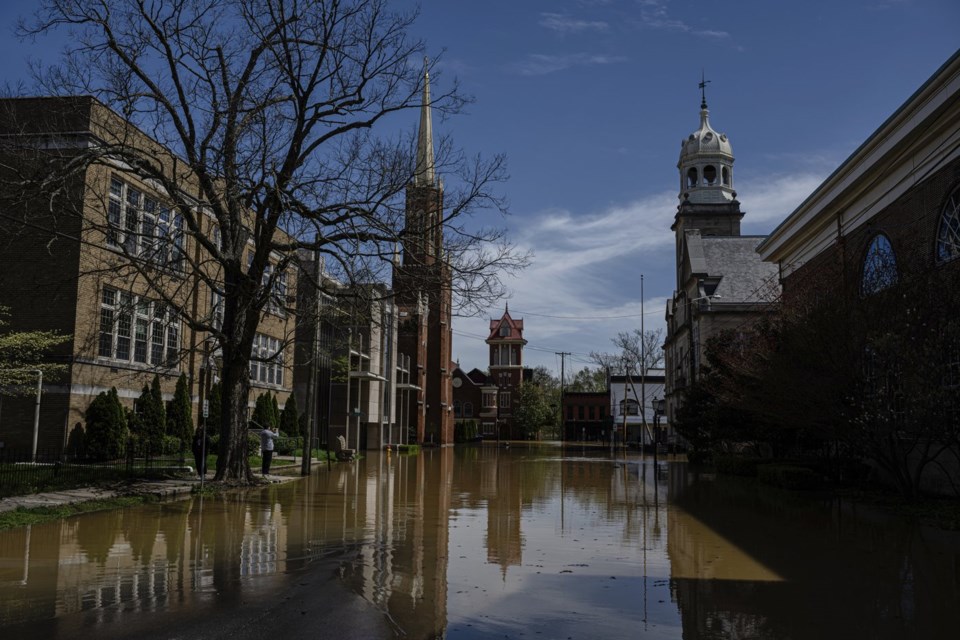Climate science is a global endeavor, requiring collaboration, data sharing, and sustained funding to accurately predict weather patterns, track climate change, and mitigate disasters. However, recent budget cuts in the United States are threatening this international effort, leaving Europe’s top weather agency—the European Centre for Medium-Range Weather Forecasts (ECMWF)—warning of dire consequences for global climate research.
The Importance of Global Climate Data Sharing
Weather and climate systems do not respect national borders. Hurricanes forming in the Atlantic, heatwaves sweeping across continents, and shifting ocean currents all require multinational monitoring. The U.S. plays a pivotal role in this network by providing critical satellite data, ocean buoys, and atmospheric measurements that feed into global forecasting models.
The ECMWF, which operates the Copernicus Climate Change Service (C3S), relies heavily on U.S. contributions. American satellites, such as those operated by NASA and NOAA, supply over 40% of the data used in European weather models. Without this input, the accuracy of long-term forecasts—essential for agriculture, disaster preparedness, and policymaking—could decline significantly.
How US Budget Cuts Are Disrupting Climate Science
Recent U.S. budget constraints and political shifts have led to:
1. Reduced Satellite Launches and Maintenance
NASA and NOAA have faced funding cuts, delaying or canceling key satellite missions. The Geostationary Operational Environmental Satellite (GOES) and Joint Polar Satellite System (JPSS) programs, crucial for real-time weather tracking, are at risk. Without timely replacements for aging satellites, gaps in data collection could emerge, weakening global forecasting.
2. Cuts to International Climate Programs
The U.S. has scaled back contributions to global climate initiatives, including the United Nations Framework Convention on Climate Change (UNFCCC) and the Intergovernmental Panel on Climate Change (IPCC). This withdrawal reduces funding for collaborative research and hinders developing nations’ access to climate data.
3. Weakening of Ground-Based Monitoring Systems
Beyond satellites, the U.S. supports a vast network of weather stations, ocean buoys, and atmospheric sensors. Budget cuts threaten the maintenance of these systems, leading to data gaps that affect not just American forecasts but also European and Asian models.
Europe’s Weather Agency Warns of Consequences
The ECMWF has explicitly stated that U.S. cuts could:
- Degrade the accuracy of weather predictions, making it harder to anticipate storms, floods, and heatwaves.
- Slow climate change research, as gaps in data make it difficult to track long-term trends.
- Increase costs for European agencies, which may need to launch additional satellites or deploy more sensors to compensate.
“The U.S. is a cornerstone of global meteorological observation,” said Dr. Florence Rabier, Director-General of ECMWF. “Any reduction in their contributions directly impacts our ability to provide reliable forecasts and climate assessments.”
The Ripple Effect on Global Economies and Safety
Accurate weather forecasts save lives and economies. The World Bank estimates that improved early warning systems could reduce disaster-related losses by up to 30%. If U.S. data becomes less reliable, the consequences include:
- Increased risks for aviation and shipping, which depend on precise weather routing.
- Agricultural disruptions, as farmers rely on seasonal forecasts for planting and harvesting.
- Higher insurance costs, as unpredictable weather raises the risk of catastrophic damage.
What Can Be Done?
1. Increased European Investment in Independent Systems
Europe is accelerating its own satellite programs, such as Copernicus Sentinel missions, but these take years to develop. Increased EU funding could help reduce reliance on U.S. data.
2. Private Sector and International Partnerships
Companies like SpaceX and Planet Labs are launching more commercial satellites. Governments could partner with private firms to fill data gaps.
3. Political Pressure to Restore US Climate Funding
Scientists and policymakers worldwide must urge the U.S. to prioritize climate science funding. International agreements could formalize data-sharing commitments to prevent future disruptions.
Conclusion
Climate science is a shared responsibility. The U.S. has long been a leader in meteorological research, but recent budget cuts threaten to undermine global efforts. Europe’s weather agencies are sounding the alarm—without reliable U.S. data, the world’s ability to predict and adapt to climate change weakens.
The solution lies in stronger international collaboration, alternative funding sources, and a renewed commitment to climate science. If the U.S. continues to retreat from its role, the consequences will be felt far beyond its borders—affecting economies, safety, and the fight against climate change itself.




